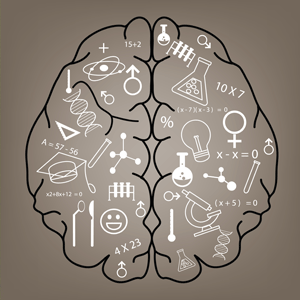
People hospitalised for anorexia nervosa activate unique areas of their brains while making decisions between various foods, researchers found.
"This study is exciting because it is the first time that we have been able to directly study what is going on in the brain when individuals with anorexia nervosa make decisions about what food to eat," said Dr Joanna Steinglass, a psychiatrist at Columbia University Medical Centre in New York.
Different neural mechanisms
Steinglass and her co-authors used functional magnetic resonance imaging (fMRI), which tracks blood flow in the brain, to compare 21 women newly hospitalised for anorexia with 21 healthy people.
During the imaging, participants rated the healthiness and tastiness of 76 foods, then answered a series of questions choosing between a food they had rated as "neutral" and other foods on the list.
Read: Fashion industry still encourages anorexia
People with anorexia were less likely than the comparison group to choose high fat foods (i.e., with at least 30 percent of their calories from fat) over the neutral food item.
Based on the fMRI data, those in the anorexia group activated their dorsal striatum region of the brain, tied to habitual actions, more than the comparison group while choosing foods, the authors reported in Nature Neuroscience.
Not surprisingly, the choices participants made during the imaging studies matched their choices the next day, when they were provided with a buffet-style lunch and allowed to have whatever they wished. The people with anorexia were less likely than the healthy comparison group to choose high fat foods for lunch.
"This study was the first to test the hypothesis that the behaviours in anorexia nervosa meet the cognitive neuroscience definition of 'habit'," Steinglass told Reuters Health by email. "We found that while patients with anorexia nervosa make choices about food, they show related activity in the dorsal striatum, whereas healthy individuals do not.
"This suggests different neural mechanisms are active for these individuals."
Understanding those neural mechanisms may suggest new directions for treatment research in the future, she said.
Unexplained reasons
Read: 'Love hormone' a potential treatment for anorexia
"Overall, we still know relatively little about brain function in anorexia nervosa," said Dr Stewart Agras of Stanford University School of Medicine in California, who was not part of the new study.
People with anorexia nervosa have habitual eating patterns and often have different responses to rewards, perhaps responding more to long-term effects rather than short term effects compared to others, he told Reuters Health by email.
"What we need to know (is) how did they develop those eating patterns, how are these patterns learned," Agras said. "I think the authors' conclusions are generally correct; however, regions in the brain are usually not specific to one type of behaviour, so there may be other unexplained reasons for this finding."
For now, these fMRI results will not change anorexia treatment, he said.
"One of the major problems with anorexia nervosa is whether findings in the brain are due to starvation," he said. "This can be corrected by looking at weight-recovered individuals but we do not know how long it takes for brains to recover from malnutrition.
Read more:
How people with anorexia ignore hunger pangs
Obesity and anorexia – two sides of the same coin?
18 kg anorexic woman begs for help after hospitals say she is too thin to treat
Image: Brain function from iStock




 Publications
Publications
 Partners
Partners














